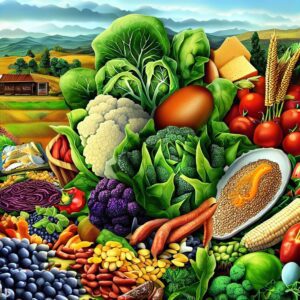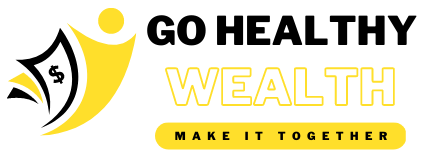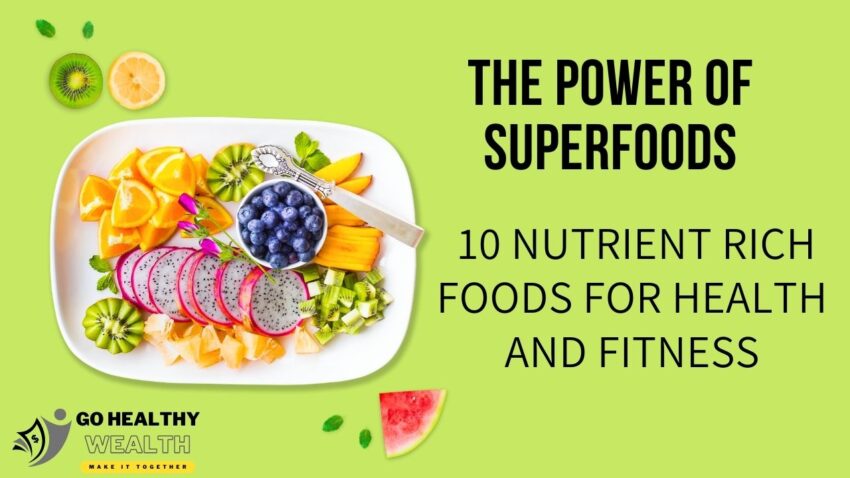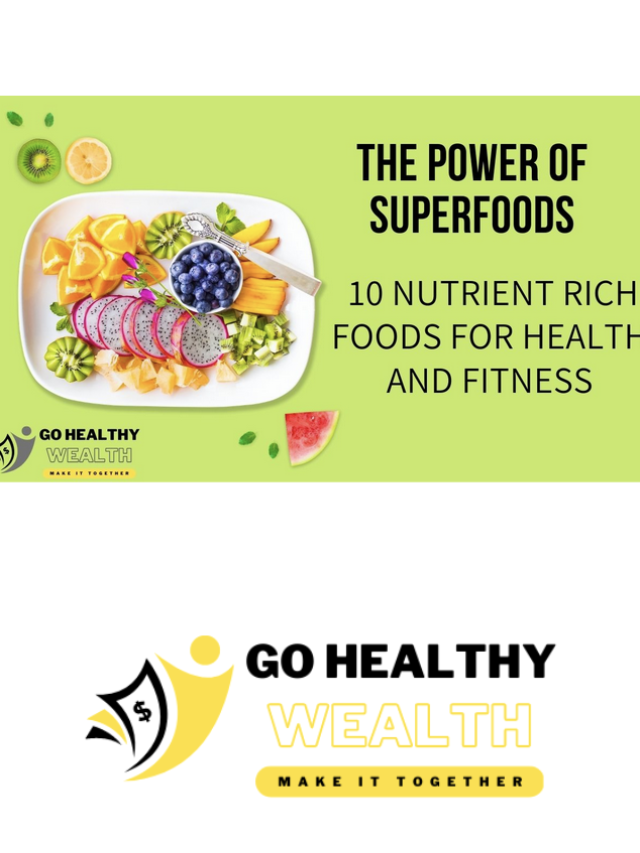Introduction
Proper nutrition plays a significant role in our overall health and fitness journey. It is not just about the number on the scale or the size of our muscles; it’s about nourishing our bodies with the right nutrients to feel energized, strong, and vibrant. In this article, we will explore the power of nutrient-rich foods and how they contribute to our well-being and fitness goals.
The Power of Nutrient-Rich Foods
Consuming nutrient-rich foods offers a multitude of benefits that go beyond mere sustenance. These foods contain a wealth of essential vitamins, minerals, and antioxidants that support various bodily functions. They act as fuel for our bodies, providing the necessary energy to perform day-to-day activities and exercise. Additionally, nutrient-rich foods promote optimal digestion, strengthen the immune system, improve cognitive function, and enhance overall well-being.
Essential Macronutrients for Optimal Health and Fitness
A. High-protein Foods
Protein is the building block of muscles, making it crucial for muscle growth and repair. Including high-quality protein sources in your diet helps maintain and build lean muscle mass, promoting a toned and strong physique. Nutrient-dense protein sources include lean meats like chicken and turkey, as well as plant-based options like tofu, tempeh, and legumes.
B. Healthy Fats
Contrary to popular belief, fats play a vital role in our bodies. Healthy fats contribute to energy production, help regulate hormones, and support cell growth and maintenance. Incorporating omega-3 fatty acids into your diet, found abundantly in fatty fish like salmon and sardines, walnuts, and flaxseeds, can provide a host of benefits for cardiovascular health and brain function.
C. Complex Carbohydrates
Carbohydrates are essential for maintaining energy levels throughout the day and fueling workouts. Opt for complex carbohydrates found in whole grains like quinoa, brown rice, and oats. These options release energy slowly, preventing spikes and crashes in blood sugar levels, and provide a steady supply of fuel for your body.
Incredible Micronutrients for Enhanced Health and Fitness
A. Vitamins for a Strong Immune System
Vitamins are essential for a robust immune system, helping our bodies fight off infections and diseases. Key vitamins include vitamin C, vitamin D, vitamin A, vitamin E, and vitamin B-complex. Foods rich in these immune-boosting vitamins include citrus fruits, leafy greens, carrots, almonds, and avocados.
B. Essential Minerals for Optimal Performance
Minerals are necessary for improved physical performance. Some important minerals to incorporate into your diet are iron, magnesium, calcium, and potassium. Iron-rich foods like lean red meat, spinach, and lentils aid in oxygen transport to the muscles, while magnesium-rich foods like almonds and bananas support muscle function and recovery.
C. Antioxidants for Recovery and Cellular Health
Antioxidants play a crucial role in muscle recovery and preventing cell damage caused by free radicals. Include antioxidant-rich foods such as blueberries, dark chocolate, green tea, and spinach in your meals to expedite recovery times and promote optimal cellular health.
10 Nutrient-Rich Foods to Incorporate in Your Diet

A. Leafy Greens
Leafy greens like kale, spinach, and Swiss chard pack a nutritional punch, boasting an array of vitamins and minerals. They are rich in fiber, which promotes digestive health, and contain antioxidants that help protect against chronic diseases. Incorporate these greens into your diet through salads, smoothies, or sautéed side dishes.
B. Berries
Berries are not only delicious but also bursting with antioxidants that combat inflammation and oxidative stress. Blueberries, raspberries, and strawberries are excellent sources of vitamins, fiber, and phytochemicals, which contribute to overall well-being. Enjoy them as a topping for yogurt, in your morning cereal, or as a guilt-free snack.
C. Nuts and Seeds
Nuts and seeds are nutrient-dense powerhouses that provide a good balance of healthy fats, protein, fiber, and essential minerals. Walnuts, almonds, chia seeds, and flaxseeds are great options to incorporate into your diet for improved heart health, brain function, and satiety.
D. Lean Meats and Poultry
Lean meats and poultry are excellent sources of high-quality protein. They provide essential amino acids necessary for muscle repair and growth. Opt for lean cuts of chicken breast, turkey, and lean beef. Remember to practice portion control and choose healthy cooking methods like grilling or baking to preserve their nutritional value.
E. Fatty Fish
Fatty fish such as salmon, mackerel, and trout are loaded with omega-3 fatty acids, which possess anti-inflammatory properties and support heart health. These essential fatty acids also aid in brain function and reducing the risk of chronic diseases. Including fatty fish in your diet twice a week ensures optimum nutrition and overall well-being.
F. Whole Grains
Whole grains such as quinoa, brown rice, and whole wheat products are an excellent source of complex carbohydrates, fiber, and essential nutrients. They provide sustained energy, regulate blood sugar levels, and contribute to heart health. Swap refined grains with whole grain alternatives in your meals for improved digestion and long-lasting energy.
G. Legumes
Legumes, including beans, lentils, and chickpeas, are a great source of plant-based protein and fiber. They are low in fat, high in nutrients, and help maintain a healthy weight. Incorporating legumes into your diet provides long-lasting energy and promotes satiety, making them an ideal choice for both vegetarians and non-vegetarians.
H. Dairy Products
Dairy products like milk, yogurt, and cheese are essential sources of calcium, vitamin D, and protein. They strengthen bones, aid in muscle recovery, and promote optimal overall health. If you are lactose intolerant or prefer non-dairy alternatives, choose fortified plant-based milk and yogurt options to ensure you receive these vital nutrients.
I. Colorful Vegetables
Vibrant vegetables, such as bell peppers, carrots, and beets, not only add color to your plate but also provide a plethora of essential vitamins, minerals, and antioxidants. These nutrients contribute to healthy skin, improved vision, and a strengthened immune system. Incorporate colorful vegetables into your meals through stir-fries, salads, or roasted side dishes.
J. Eggs
Eggs are a versatile and protein-rich food, providing all nine essential amino acids. They are also a source of vitamins, minerals, and antioxidants. Whether scrambled, poached, or hard-boiled, eggs make for a nutritious and filling addition to your diet.
Strategies for Meal Planning and Preparation

A. Creating a Balanced Meal
When planning your meals, it is important to consider portion sizes and the ratio of macronutrients. Aim to include a combination of lean protein, healthy fats, complex carbohydrates, and a variety of fruits and vegetables. This balanced approach ensures adequate nutrition and supports your health and fitness goals.
B. Preparing Nutrient-Rich Meals
To preserve the nutritional value of your meals, opt for cooking methods that retain the integrity of the ingredients. Steaming, grilling, and baking are excellent choices. Additionally, engaging in meal prepping can save time and ensure that you always have nutrient-rich options available, even on busy days.
FAQs on Nutrient-Rich Foods and Fitness
Can nutrient-rich foods help with weight loss?
Yes, nutrient-rich foods can aid in weight loss. They provide essential nutrients while being lower in calories, making it easier to maintain a calorie deficit and achieve weight loss goals.
Can these foods improve athletic performance?
Absolutely! Nutrient-rich foods provide the necessary fuel and nutrients for sustained energy and optimal physical performance. They support muscle growth, aid in recovery, and promote overall athletic prowess.
Are there any potential allergens in nutrient-rich foods?
While nutrient-rich foods offer numerous health benefits, it is important to be aware of potential allergens. Common food allergens include nuts, dairy, soy, and gluten. If you have any known allergies or sensitivities, it is crucial to read labels and consult with a healthcare professional to ensure optimal food choices.
How can I incorporate these foods into a vegetarian or vegan diet?
A vegetarian or vegan diet can still include a wide variety of nutrient-rich foods. Plant-based sources of protein like legumes, tofu, tempeh, and seitan can replace animal-based protein. Additionally, incorporating a variety of fruits, vegetables, nuts, seeds, and whole grains ensures a well-rounded nutrient intake.
Conclusion
Fueling your body with nutrient-rich foods is paramount for optimal health and fitness. By incorporating high-protein foods, healthy fats, complex carbohydrates, and a variety of fruits and vegetables into your diet, you can nourish your body from the inside out. Whether you are an athlete, a fitness enthusiast, or simply looking to improve your overall well-being, prioritizing a balanced, nutrient-dense diet will propel you toward a healthier and more fulfilling life. So, fill your plate with these ten nutrient-rich foods and let your body thrive!
For more related articles,
Prevent heart disease | How can exercise and a good diet prevent heart diseases different 5 ways ?
Type 2 Diabetes | Understand and Manage with Diet and Lifestyle Changes

If wanted to learn more and get yourself educated in personal finance and health let’s check out here
Thank you and Keep visiting us for valuable articles… 🙂



